Europe In April 2010: Down 7.4 Percent

The European Automobile Manufacturers’ Association ACEA released sales numbers for April. As predicted on Friday, the numbers are bad. For the first time this year, and for the first time in 10 months, numbers are negative. New passenger car registrations in Europe fell by 7.4 percent in April compared to the same month last year. They will get worse.
Percentage-wise, the decline in April registrations is a by-product of the cash for clunkers upturn last year. Led by Germany, more and more countries jumped on the bandwagon, with considerable effect (see chart.) More and more European countries have either ended or are phasing out the incentives for putting aging cars out of their misery.
It had been widely expected that sales will be down in 2010 compared to the government-enhanced numbers of 2009. For the rest of 2010, the negative numbers will get higher and higher, as we are comparing to a higher and higher base.
More disconcerting is the fact that for the first 4 months, EU car sales are already 11.6 percent below pre-crisis levels in the same period of 2008. Also, some markets still have scrapping programs, or show the decaying effect of just terminated programs. Once all of Europe has been weaned off the clunker steroids, the market will look miserable for quite some while.
With the drug highs mostly gone, a bleak new normalcy is setting in. In April, Germany was again Europe’s largest market with 259,414 units, despite new registrations falling by 31.7 percent. #2 on the podium: France. Italy.
By manufacturer in the 27 countries of the EU, the Volkswagen Group remains the unassailable leader with a 22 percent market share. PSA Group is in second position with a 13.9 percent market share, followed by Renault Group with a 10.5 percent share. Ford is 4th with a 9.4 percent share.
Speaking of Ford, there most likely are huge regrets in Cologne for embarking on the silly “largest brand in Europe” PR gamble. It’s coming to haunt them. In the EU 27, the Ford brand is now in 4th position after Volkswagen, Renault and Peugeot. On a brand level, Ford lost 19.6 percent in the EU 27, nearly three points more than the 17 percent they had (not really) admitted on Friday, for a Europe 19 that doesn’t exist. If they wouldn’t have made outrageous claims, this would have fallen under the table. Toyota (-21.3 percent), Suzuki (-26.3 percent) and Honda (-28.1 percent) have worse numbers. A much better PR strategy for Ford would have been to tout their #4 ranking as a manufacturer, a respectable showing. What helped the Ford Group was a surprising 35.2 percent rise in Volvo registrations all over Europe. Volvo still belongs to and counts for Ford until the deal with Geely closes. Without Volvo, Ford would be in the #7 slot on a group level, behind GM and Fiat.
Detailed numbers are available as PDF and in Excel format for your number crunching pleasure.

Bertel Schmitt comes back to journalism after taking a 35 year break in advertising and marketing. He ran and owned advertising agencies in Duesseldorf, Germany, and New York City. Volkswagen A.G. was Bertel's most important corporate account. Schmitt's advertising and marketing career touched many corners of the industry with a special focus on automotive products and services. Since 2004, he lives in Japan and China with his wife <a href="http://www.tomokoandbertel.com"> Tomoko </a>. Bertel Schmitt is a founding board member of the <a href="http://www.offshoresuperseries.com"> Offshore Super Series </a>, an American offshore powerboat racing organization. He is co-owner of the racing team Typhoon.
More by Bertel Schmitt
Latest Car Reviews
Read moreLatest Product Reviews
Read moreRecent Comments
- MaintenanceCosts In Toyota's hands, these hybrid powertrains with a single motor and a conventional automatic transmission have not been achieving the same kind of fuel economy benefits as the planetary-gear setups in the smaller cars. It's too bad. Many years ago GM did a group of full-size pickups and SUVs with a 6.0L V8 and a two-motor planetary gear system, and those got the fuel economy boost you'd expect while maintaining big-time towing capacity. Toyota should have done the same with its turbo four and six in the new trucks.
- JMII My C7 isn't too bad maintain wise but it requires 10 quarts of expensive 0W-40 once a year (per GM) and tires are pricey due size and grip requirements. I average about $600 a year in maintenance but a majority of that is due to track usage. Brake fluid, brake pads and tires add up quickly. Wiper blades, coolant flush, transmission fluid, rear diff fluid and a new battery were the other costs. I bought the car in 2018 with 18k in mileage and now it has 42k. Many of the items mentioned are needed between 20k and 40k per GM's service schedule so my ownership period just happens to align with various intervals.I really need to go thru my service spreadsheet and put track related items on a separate tab to get a better picture of what "normal" cost would be. Its likely 75% of my spend is track related.Repairs to date are only $350. I needed a new XM antenna (aftermarket), a cargo net clip, a backup lamp switch and new LED side markers (aftermarket). The LEDs were the most expensive at $220.
- Slavuta I drove it but previous style. Its big, with numb steering feel, and transmission that takes away from whatever the engine has.
- Wjtinfwb Rivaled only by the Prowler and Thunderbird as retro vehicles that missed the mark... by a mile.
- Wjtinfwb Tennessee is a Right to Work state. The UAW will have a bit less leverage there than in Michigan, which repealed R t W a couple years ago. And how much leverage will the UAW really have in Chattanooga. That plant builds ID. 4 and Atlas, neither of which are setting the world afire, sales wise. I'd have thought VW would have learned the UAW plays by different rules than the placid German unions from the Westmoreland PA debacle. But history has shown VW to be exceptionally slow learners. Watching with interest.



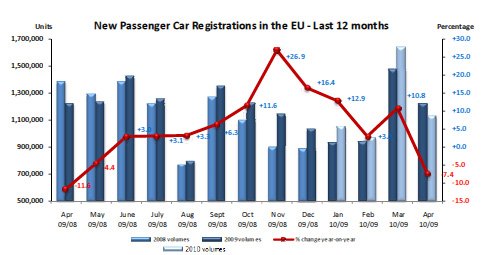















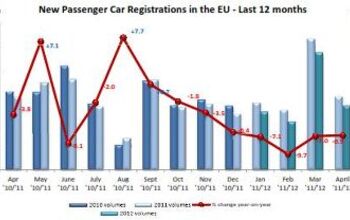
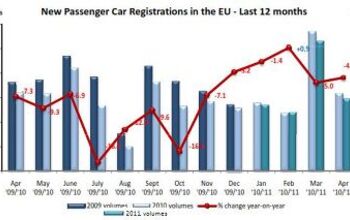

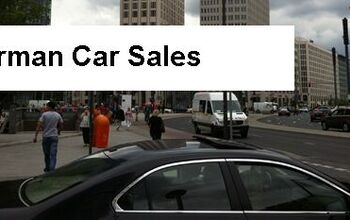

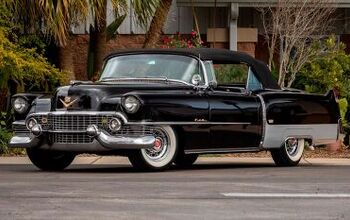









Comments
Join the conversation